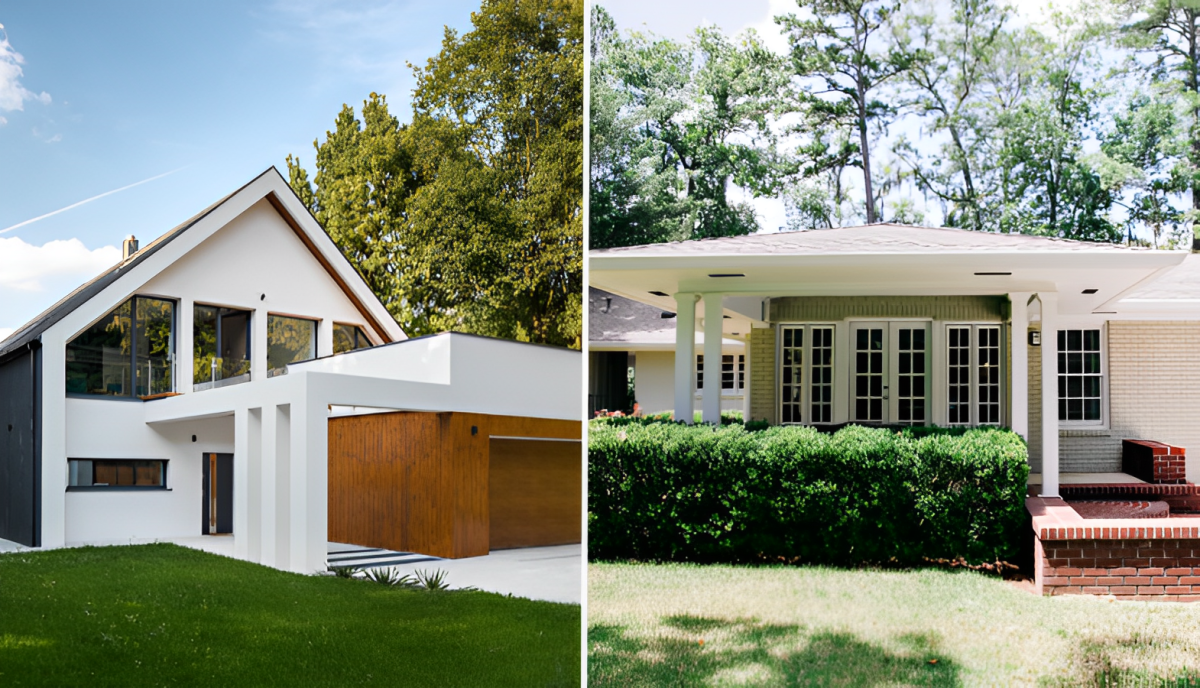Purchasing a home is one of the most significant investments and decisions many Canadians will make. However, prospective homebuyers are often faced with choosing between a new or old home. By weighing the pros and cons of each option, homebuyers can make an informed decision that best suits their needs and financial situation. Let’s look at the benefits and drawbacks of new and old homes.
Buying a New Home
Here are the benefits of buying a new home:
Customization – Homebuyers are often drawn to new homes for the ability to customize the space to their liking. This can include choosing finishes and materials and designing the home’s layout and features.
Energy Efficiency – New homes often have energy-efficient features, such as high-performance windows and insulation, leading to lower utility bills and a more sustainable lifestyle.
Modern Amenities – New homes often have modern amenities like smart home technology, high-end appliances, and state-of-the-art security systems.
Low Maintenance – New homes typically require less maintenance than older homes, saving homeowners time and money in the long run.
Here are the drawbacks of buying a new home:
Higher Costs – New homes often have a premium price tag due to the customization options and modern amenities.
Potential Construction Delays – Building a new home can come with unexpected delays due to weather, permitting, or supply chain disruptions, leading to added stress and costs.
Finishing Expenses – New homes are often incomplete, especially those in new subdivisions. They may have unfinished basements, driveways or even lawns. In some areas, you’ll be required to sod your yard within a specified period of time, an expense that you might not have anticipated.
Lack of Established Neighborhood – New developments may lack the charm and character of established neighbourhoods, which can be a disadvantage for those seeking a sense of community.
Limited Land Availability – New homes may be limited to new developments with limited land availability, which can limit options for those seeking specific locations or lot sizes.
Buying an Old Home
Here are the benefits of buying an old home:
Established Neighborhoods – Old homes are often found in established neighbourhoods with history and character. These neighbourhoods often have mature trees, unique architecture, and a sense of community that is difficult to replicate in new developments.
Lower Cost – Old homes can be more affordable than new homes, benefiting those on a tight budget.
Potential Charm and Character – Old homes often have unique features and design elements that can add to the home’s charm and character.
Larger Lot Sizes – Older homes may have larger lot sizes than newer homes, which can provide more outdoor space and privacy.
Here are the drawbacks of buying an old home:
Repairs and Renovations – Older homes may require considerable work to update electrical, plumbing, and other systems, which can be expensive and time-consuming.
Energy Inefficiency – Older homes may be less energy-efficient than newer homes, leading to higher utility bills and a less sustainable lifestyle.
Limited Customization – Older homes may not offer the same customization options as newer homes, which can be a disadvantage for those seeking specific design features.
Potential for Hidden Problems – Older homes may have hidden problems, such as structural issues or water damage, that may not be apparent during the initial home inspection.
Factors to Consider When Choosing Between a New Home and an Old Home
When choosing between a new home and an old home, there are several important factors to consider:
Budget – New homes are typically more expensive than older homes, but they may come with features and amenities that could justify the added cost. Conversely, older homes may require more repairs and renovations, which can add to the overall cost of ownership.
Lifestyle preferences – If you value a sense of community and established neighbourhoods, an older home in an established area may be the better choice. Conversely, a new home may be better if you value modern amenities and customization options.
Energy efficiency – New homes are typically more energy-efficient than older homes, which can result in lower utility bills and a more sustainable lifestyle. However, older homes can be updated with energy-efficient features to improve their efficiency.
Maintenance and repairs – Older homes may require more maintenance and repairs than new homes, which can add to the overall cost of ownership. Conversely, new homes may come with warranties and guarantees that can help offset the repair cost.
Location – New homes are often located in new developments, while older homes may be found in established neighbourhoods. Consider proximity to schools, work, and amenities when making your decision.
Choosing between a new or old home can be a challenging and personal decision for prospective homebuyers. While each option offers unique advantages and disadvantages, it ultimately comes down to personal preferences, budget, and lifestyle considerations. Whether you choose a new or old home, homeownership is a rewarding and vital investment in your future. Talk to a RE/MAX real estate agent today to discuss whether a new or old home would better suit your needs.





